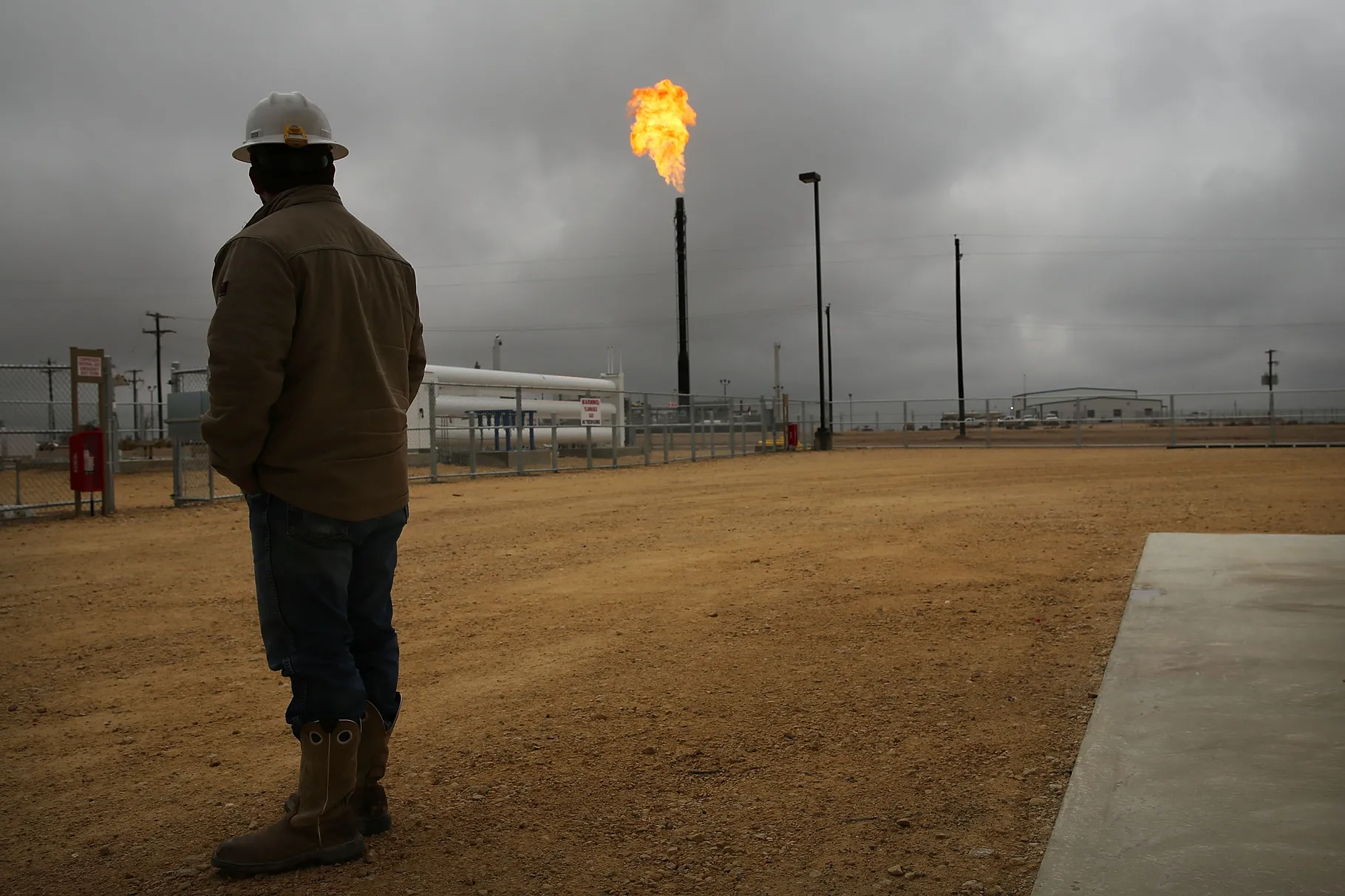Due to an increasing number of earthquakes in or near the Permian Basin, the Texas Railroad Commission has tapped the brakes on hydraulic fracturing — known as “fracking” — in the area.
The Independent Petroleum Association of America (IPAA) is the trade association for the American oil and gas industry.
According their website, “Fracking is a uniquely American success story that has provided immense benefits around the nation. By safely unlocking America’s abundant natural resources, fracking has created millions of American jobs, reduced energy prices, brought cleaner air by significantly reducing U.S. greenhouse gas emissions to 25-year-lows, strengthened our national security, and transformed the United States into a global energy superpower.”
IPAA data states that the U.S. has produced “seven billion barrels of oil and 600 trillion cubic feet of natural gas by using fracking.”
The Permian Basin, which stretches across West Texas and Eastern New Mexico, is the most productive oil patch in the United States. Approximately 40% of the nation’s oil supply products and 15% of the gas supplies come from this region.
The Railroad Commission of Texas (RRC), which oversees oil and gas production in the state, also tracks seismic activity in the area, as it may be connected to the industry’s practice of fracking.
In 2009, the RRC reported 19 earthquakes in West Texas. In 2017, there were more than 1,600 in the area. In 2021, there were nearly 2,000 earthquakes, and 17 of those were of magnitude 4.0 or higher.
The United States Geological Survey (USGS) claims that fracking operations cause thousands of tiny earthquakes daily, awakening seismic fault lines under the Earth’s crust.
The fracking process involves drilling a well deep into the ground and then injecting pressurized liquid into the well to break away bedrock and expose oil and gas deposits.
Once fracking is completed, petroleum experts refer to the well as a “completed well,” which can then extract oil and gas at a steady rate.
Massive amounts of saltwater are pulled up through the well when land is hydraulically fracked. The water is then taken to a separate site and re-injected back into the ground. Wastewater injection, in particular, is claimed to be the main culprit in the fracking process that is causing the uptick in seismic activity, according to some experts.
Heather DeShon, from the Department of Earth Sciences at Southern Methodist University in Dallas, states that the wastewater is injected close to underground basins, or aquifers. These aquifers usually sit along fault lines. When water is injected, the fault lines can be put under immense pressure and therefore shift, causing earthquakes.
The USGS confirmed this explanation, writing, “The recent increase in earthquakes in the central United States is primarily caused by the disposal of waste fluids that are a byproduct of oil production.”
Last September, the Texas RRC placed a ban on issuing new permits for wastewater injection. The ban is indefinite but is expected to last at least a year. Of the wells currently in operation, 76 have been asked to reduce their maximum daily injection rate to 10,000 barrels of wastewater.
Texas Oil and Gas Association (TXOGA) posted a statement in response to the RRC’s recent wastewater injection policies on their website:
“The Texas Oil & Gas Association respects the Railroad Commission’s (RRC) notice to operators in the areas of increased seismic activity and gathering more data to determine the level of appropriate injection volumes is certainly reasonable. The Texas oil and natural gas industry is working with the RRC to address this issue and strongly supported the Texas legislature’s creation of the Produced Water Consortium, by Senator Charles Perry and Representative Dustin Burrows, last session that promotes innovation in the responsible development of our state’s natural resources. Operators are continuously looking for the best methods to reuse and recycle produced water and are encouraged by the progress being made.”







Wow was this junk written by the oil companies “fracking has created millions of American jobs, reduced energy prices, brought cleaner air by significantly reducing U.S. greenhouse gas emissions to 25-year-lows, strengthened our national security, and transformed the United States into a global energy superpower.”
1st we didn’t strengthened our national security all we did is allow oil companies to sell the country oil supply overseas, we still import too much oil from the Saudi the antichrist country and depend on other country including the Russian so how does this make us stronger,
2nd 25yr low on greenhouse gas, when their NO laws to force them to capture all that Methane gas that release into the air or burn off.
3rd millions of jobs another fake number with no proof to back up, it call a job shuffle people go where the pay is
4th what superpower instead of using the oil cheaper lowering the price for it citizen, still buying all from the middle east you made us weaker